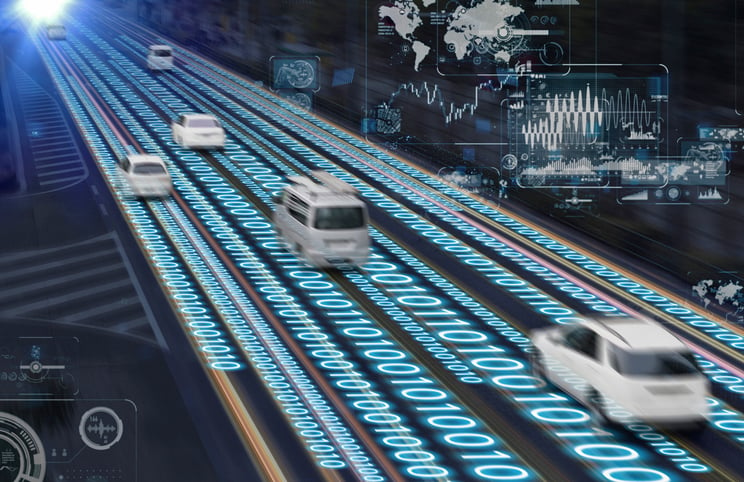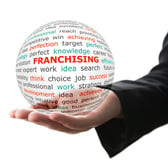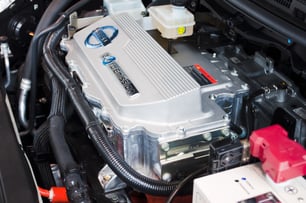 Today I heard another comment about the future of automotive retailing from someone who is not in the industry, but considers themselves fully qualified to predict the future. Predicting is a tricky business, particularly about the future. In this case, his prediction was that new car dealers would go away, and be replaced by “test drive centers” where you can take a test drive after doing all your research online.
Today I heard another comment about the future of automotive retailing from someone who is not in the industry, but considers themselves fully qualified to predict the future. Predicting is a tricky business, particularly about the future. In this case, his prediction was that new car dealers would go away, and be replaced by “test drive centers” where you can take a test drive after doing all your research online.
He reasoned “that is the most efficient way to do things” and the salesman is “just a hindrance who gets in the way and doesn’t add value anyway.” Twenty years from now, he says, all cars will be purchased online, and there will be no dealer stores. He said, “we have already reached peak car sales” and that people will use door-to-door services like Uber and Lyft. “Autonomous cars will run 18 hours a day.” He adds that state vehicle franchise laws will at some point go away because “consumers will demand it.”
Of course, most of this is sheer rubbish. The person making these comments has no real understanding of the value that dealers bring to consumers now. Let’s take a look at the value-add here.
What Value Do New Car Dealers Offer?
New car dealers deliver tremendous value to the local and national economies:
 Local communities benefit from the creation of jobs and capital investments.
Local communities benefit from the creation of jobs and capital investments.- Car manufacturers can allocate their scarce capital to design, engineering, and market their products, instead of being a low-margin retailer.
- Consumer protection laws give buyers extra protection in the marketplace when they buy from a new car dealer. Every step of the purchase, from manufacturing to purchasing to repair and servicing, is regulated by the government.
Skeptical about government regulations? Consider these facts.
- To drive a car, you have to have a state issued license.
- To take a test drive, you must have insurance from a company regulated by your state.
- Over 80% of car sales require some form of financing which is regulated by fair credit laws.
- Over 60% of purchases involve a trade-in which requires the payoff of existing liens.
- Service technicians at new car dealerships are licensed by the Bureau of Automotive Repair.
- Hazardous materials are subject to state laws on recycling and disposal.
- A defective car can cause an accident which could involve a fatality.
What Is the Future of Automotive Retailing?
For starters, state dealer franchise laws are not going away now or in the future. Federal courts have repeatedly upheld the validity of states to regulate the buying and selling of cars, and the U.S. Supreme Court ruled that the California state legislature was “constitutionally empowered “ to enact dealer franchise laws.
Consumers are not going to demand that states eliminate franchise laws because the consumers are the ones  who benefit from them in the first place. Duh?
who benefit from them in the first place. Duh?
It’s a fact that cars need to be retailed, and whichever entity does the retailing will incur costs of doing so, whether it is the factory or a local dealer. The car does not just magically “sell itself” online or on a test drive lot somewhere.
Perhaps my friend who made these comments believes that in the future we will all drive electric cars and they will require no service or maintenance. I disagree.
Today’s cars are extremely complicated. The software alone is based on one hundred million lines of programming code — more than that required to fly a commercial airplane! The diagnostics required to troubleshoot a software issue in a new car will require factory trained technicians with access to factory diagnostics. Every mechanical device will require maintenance and repair.
What is the Key Issue Concerning the Future of Automotive Retailing?
But even this point does not address the key issue: the majority of Americans live in areas where there is no comprehensive, reliable or far reaching public transportation system.
Even if there was, many people do not have regular work schedules, and may need to come in early or work late, or take the dog to the vet, or shuttle their children to and from sports practice. People need to run errands and go  shopping before and after work, which is fine if you live in a big city where you can walk or take the bus or subway to shopping. It doesn’t work if you have a 30-mile commute each way, as I do and live in a rural area, as many Americans do.
shopping before and after work, which is fine if you live in a big city where you can walk or take the bus or subway to shopping. It doesn’t work if you have a 30-mile commute each way, as I do and live in a rural area, as many Americans do.
One of the most lucid commentators on the auto industry is Peter de Lorenzo of www.autoextremist.com. He makes a point worth remembering that has relevance to future of automotive retailing:
“This country was fueled by the freedom to roam, and enduring wanderlust that drove us to see and to do and to be. We explored and settled its vastness with a restlessness that knew no bounds. Mobility is a form of individual expression.”
For anyone that lives outside of a big city, this is still true, and I doubt if most of those people will give up their freedom of mobility for ride sharing or autonomous cars or public transportation.
Additional Value of New Car Dealers
Here are a couple of other points worth mentioning. Locally owned and operated dealers employ more than a million people in well-paying jobs with benefits. They also pay billions of dollars in state and local taxes — more than 15 percent of state and local tax revenue!
 It might surprise you to learn that more than 95 percent of local dealers are privately owned businesses, and nearly 40 percent of them sell fewer than 300 new cars per year. State franchise laws protect these dealers from potential unfair business practices from the manufacturers, such as opening a factory owned store next door or giving preferred pricing to larger dealers.
It might surprise you to learn that more than 95 percent of local dealers are privately owned businesses, and nearly 40 percent of them sell fewer than 300 new cars per year. State franchise laws protect these dealers from potential unfair business practices from the manufacturers, such as opening a factory owned store next door or giving preferred pricing to larger dealers.
That is the reality check on the importance of the factory franchise dealer selling cars in your hometown.
What Is the future of automotive retailing? … The answer is that the store is not going anywhere soon or changing their business practices because things work pretty well now.
What Value Does CrossCheck Bring to New Car Dealers and Consumers?
Another thing that works well at dealerships is using CrossCheck to help consumers get the car that they want right now, even if they don’t have enough funds to complete the sale.
 Envision this.
Envision this.
A consumer finds the exact car of their dreams at a local dealership and the financing package looks good too. The only problem is that they just don’t have enough for the down payment right now. They do, however, have the ability to complete a down payment if given a little extra time. Here’s how it works.
CrossCheck’s Multiple Check service lets them spread the cost of a down payment by writing up to four checks to be deposited over the next 30 days. They do not have to apply for credit or pay any interest because it’s not financing. Meanwhile, the dealer knows CrossCheck will guarantee these checks after each deposit, so they get to make the sale and close out the paperwork. It’s a win-win for the dealer and the consumer, and gets the taillights over the curb.
Happy motoring from CrossCheck — now and into the future of automotive retailing!
Download our free guide to learn how Multiple Check can help increase sales and mitigate risk while saving time and money at your dealership.


